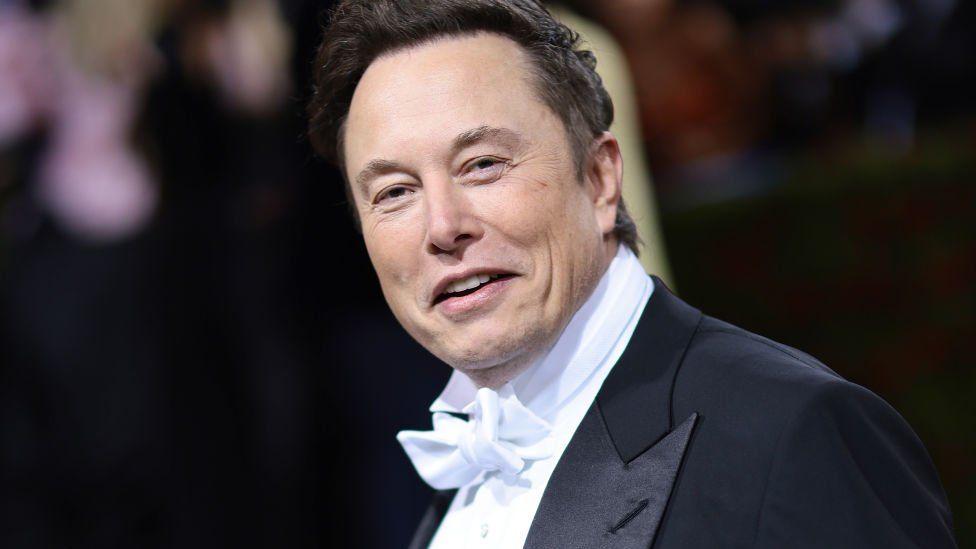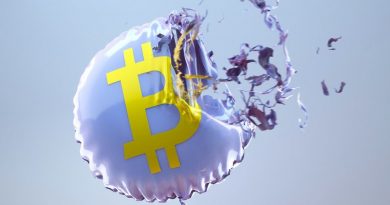Elon Musk completes $44bn Twitter takeover
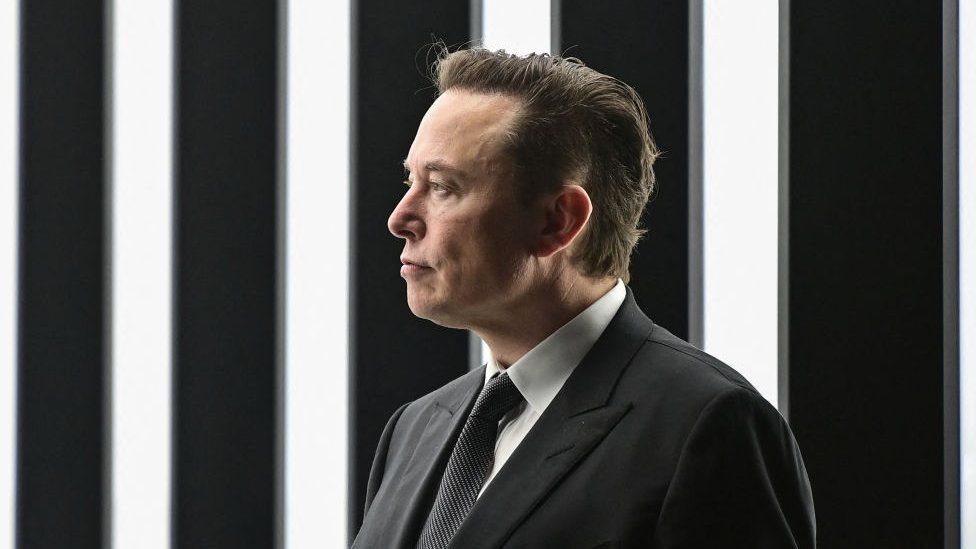
Elon Musk has completed his $44bn (£38.1bn) takeover of Twitter, according to an investor in the firm.
Twitter’s chief executive and finance boss have reportedly left with immediate effect.
It brings to a close a saga that saw Twitter going to court to hold the world’s richest man to the terms of a takeover deal that he had tried to escape.
Mr Musk tweeted his interest in the platform was not about making money.
Twitter investor Ross Gerber, who is chief executive of Gerber Kawasaki Investments in California, confirmed to the BBC that the deal had been completed.
“I think the court pushed him over the line,” said Mr Gerber. “Quite frankly, this has sort of been a disaster from the beginning, of course, starting off very aggressively courting Twitter in a way that really forced Twitter to the table… then getting all upset and having a public spat over what to me was pretty well known issues.”
The company’s chief executive, Parag Agrawal, chief financial officer Ned Segal, and the firm’s top legal and policy executive, Vijaya Gadde, are no longer with the company, according to US media reports.
Twitter co-founder Biz Stone thanked Mr Agrawal, Mr Segal and Ms Gadde for their “collective contribution” to the business.
Thank you to @paraga, @vijaya, and @nedsegal for the collective contribution to Twitter. Massive talents, all, and beautiful humans each!
— Biz Stone (@biz) October 28, 2022
The social media platform’s shares will be suspended from trading on Friday, according to the New York Stock Exchange’s website.
Mr Musk said he bought the social media platform to help humanity and he wanted “civilization to have a common digital town square”.
Earlier this week Mr Musk tweeted a video of himself walking into Twitter’s headquarters in San Francisco carrying a kitchen sink with the caption: “let that sink in!”
He also changed his Twitter profile to read “Chief Twit”.
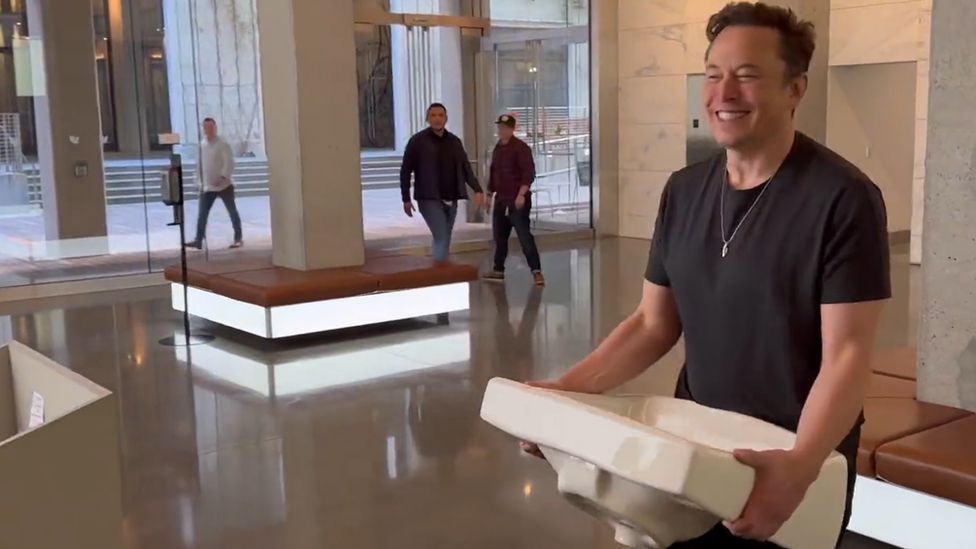
Many analysts argued the price Mr Musk is now paying for the company is too high given the decline in the values of many tech stocks and Twitter’s struggle to attract users and grow.
On a recent earnings call, the Tesla founder said Twitter was “an asset that has just sort of languished for a long time, but has incredible potential, although obviously myself and the other investors are overpaying for Twitter right now”.

A new dawn

It now appears as though Twitter’s top executives have been brushed aside by Mr Musk.
It’s unlikely the eccentric billionaire will call himself chief executive. But make no mistake, he now runs Twitter.
Mr Musk fell out with Twitter’s CEO Parag Agrawal in early April – when he sat briefly on Twitter’s board.
In private messages revealed in court filings, Mr Musk talked about how Mr Agrawal didn’t understand how to fix Twitter’s problems.
His removal is hardly surprising and signals a clear change in direction for the social media platform.
Many people on the right of US politics will celebrate his exit. They view people like Parag Agrawal, and his predecessor, Jack Dorsey, as liberals who are curtailing free speech.
They also think under their stewardship Twitter has censored conservative voices.
It appears now Mr Musk is at the helm, and many people who have been banned for hate speech or disinformation may be invited back to the platform.
This may leave the door open for Donald Trump to come back to Twitter – though the former president has previously said he won’t be reactivating his account – preferring instead to post on his own platform Truth Social.

Long road to a deal
Mr Musk’s early investments in Twitter initially escaped public attention. In January, he began making regular purchases of shares, so that by the middle of March he had accumulated a 5% stake in the firm.
In April, he was revealed as Twitter’s largest shareholder, and by the end of the month a deal was finally reached to buy the company for $44bn.
He said he planned to clean up spam accounts and preserve the platform as a venue for free speech.
But by mid-May Mr Musk, a prolific Twitter user, had begun to change his mind about the purchase, citing concerns that the number of fake accounts on the platform was higher than Twitter claimed.
In July he said he no longer wished to acquire the company. Twitter, however, argued the billionaire was legally committed to the acquisition.
Twitter eventually filed a lawsuit to hold him to the deal.
In early October, Mr Musk revived his takeover plans for the company on condition that legal proceedings were paused.
Change ahead
Mr Musk, a self-styled “free speech absolutist”, has been critical of Twitter’s moderation policies and the news will be greeted with mixed feelings by Twitter users and employees.
Some users, particularly those on the US right, argue conservative voices are censored on the platform – an accusation that Twitter denies.
Former US President Donald Trump remains banned from the platform – a decision Mr Musk has previously said was “foolish” and that he would reverse.
But others fear relaxing moderation policies would allow hate-speech to proliferate.
In a tweet addressed to Twitter advertisers Mr Musk said that the platform could not become a “free-for-all hellscape” and must be “warm and welcoming for all”.
Dear Twitter Advertisers pic.twitter.com/GMwHmInPAS
— Elon Musk (@elonmusk) October 27, 2022
As Twitter’s owner, Mr Musk was widely reported to be planning big staff cuts. However, Bloomberg has reported the billionaire denied that he would cut 75% of staff in a meeting with employees.
But working at Twitter may become more onerous. The Tesla chief executive has previously tweeted that employees should anticipate work ethic expectations that are “extreme”.
Also, work ethic expectations would be extreme, but much less than I demand of myself
— Elon Musk (@elonmusk) May 7, 2022
The entrepreneur has also posted that his plans for Twitter include “X, the app for everything”.
Some suggest this might be something along the lines of the hugely successful Chinese app WeChat, a kind of “super app” that incorporates different services including messaging, social media, payments and food orders.
-
-
11 hours ago
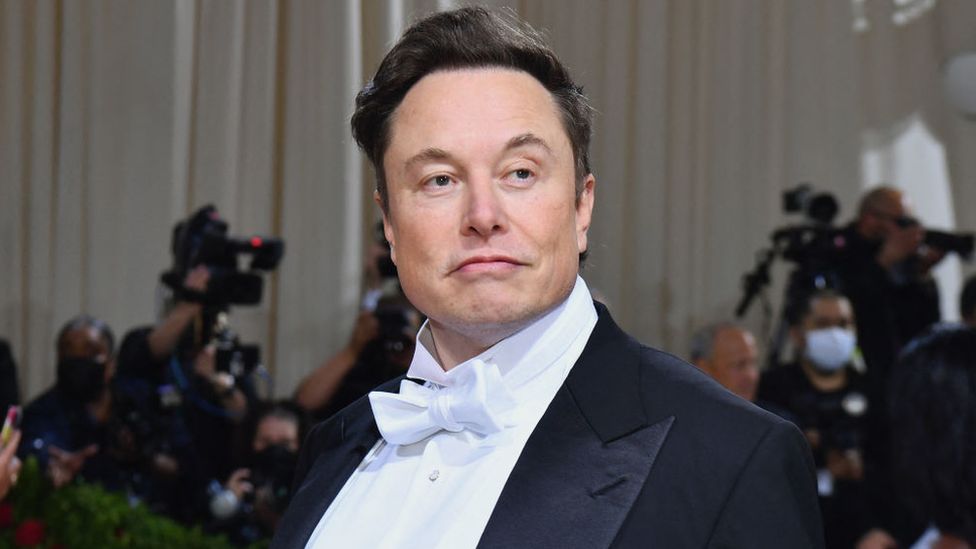
-

